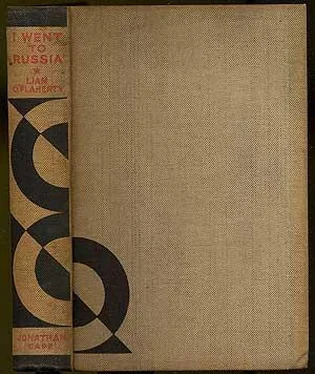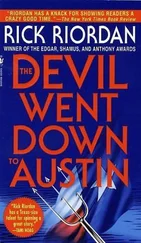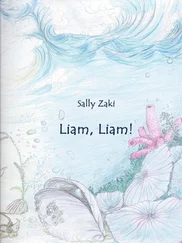Liam O'Flaherty - I Went to Russia
Здесь есть возможность читать онлайн «Liam O'Flaherty - I Went to Russia» весь текст электронной книги совершенно бесплатно (целиком полную версию без сокращений). В некоторых случаях можно слушать аудио, скачать через торрент в формате fb2 и присутствует краткое содержание. Город: London, Год выпуска: 2011, ISBN: 2011, Издательство: Bloomsbury Publishing, Жанр: Публицистика, на английском языке. Описание произведения, (предисловие) а так же отзывы посетителей доступны на портале библиотеки ЛибКат.
- Название:I Went to Russia
- Автор:
- Издательство:Bloomsbury Publishing
- Жанр:
- Год:2011
- Город:London
- ISBN:9781448205592
- Рейтинг книги:5 / 5. Голосов: 1
-
Избранное:Добавить в избранное
- Отзывы:
-
Ваша оценка:
- 100
- 1
- 2
- 3
- 4
- 5
I Went to Russia: краткое содержание, описание и аннотация
Предлагаем к чтению аннотацию, описание, краткое содержание или предисловие (зависит от того, что написал сам автор книги «I Went to Russia»). Если вы не нашли необходимую информацию о книге — напишите в комментариях, мы постараемся отыскать её.
I Went to Russia — читать онлайн бесплатно полную книгу (весь текст) целиком
Ниже представлен текст книги, разбитый по страницам. Система сохранения места последней прочитанной страницы, позволяет с удобством читать онлайн бесплатно книгу «I Went to Russia», без необходимости каждый раз заново искать на чём Вы остановились. Поставьте закладку, и сможете в любой момент перейти на страницу, на которой закончили чтение.
Интервал:
Закладка:
I found that Moscow and, as a corollary, the whole of Russia was an enlargement of the ship on which I journeyed from London to Leningrad; the same ludicrous evangelistic Communism on the surface and the same greedy, ambitious, admirable human nature beneath. The only difference between the ship and Moscow was that there were fewer cranks, fanatical Jews and useless scoundrels on the ship than in Moscow.
Anything new? Just one, which is not really new, but a recurring phenomenon in man’s history: New Tools Applied To Virgin Soil.
Having come to this conclusion, I decided to call on Mr. Walter Duranty in order to compare my impressions with his. As one of the leading foreign correspondents, he is known in practically every country in the world among journalists as an authority on Soviet Russia. He had been in residence there for eight years and even though he is an educated Englishman of merely Liberal tendencies, he has earned the respect and gratitude of the Russian people for the fairness of his dispatches to the New York Times. Such an unbiassed observer, I felt, would be the exact opposite to myself. Therefore, a conversation with him would not fail to get me out of the intellectual muddle, in which my journey to Moscow had placed me. And having set the muddle in order, I was determined to return to Europe and continue my life, firmly convinced that new Gods were not the business of Europeans.
Chapter XV. Mr. Duranty Explains
When I entered his study, Walter Duranty was typing a cable to his newspaper. He treated me to the luxury of a foreign cigarette and some French wine, told me that Blenheim had won the Derby and asked me to make myself comfortable while he finished his cable. His good-humoured, intelligent English face and his courteous manner at once made me feel more at home than I had felt since my arrival in Russia. Although the Russians had been outrageously courteous, polite and hospitable, this was something different. One did not have to make an effort.
He broke off in the middle of a sentence to laugh loudly.
‘I have just returned from an extraordinary expedition,’ he said. Tm writing an account of an astonishing lunatic asylum I saw in Bokhara, We were all brought out there as the guests of the Government to examine the new Turkish railway. Well! You see the Emir of Bokhara fled on the approach of the Bolshevik forces, bringing with him all his camels, his six hundred mistresses and about three hundred boys. His magnificent palace was left to the Reds. They were at a loss what to do with it, so they turned it into a lunatic asylum. I went over the premises and certainly nothing could be more ludicrous than to see this fanatastic magnificence put to such use. The most spectacular thing I noticed was a Bolshevik warder lolling on a seat in a beautiful garden with fountains, reading a book on The Economic Causes of Insanity. I certainly hope to go there for treatment when I break down under the strain of Soviet life.’
He laughed again and continued to write about the Emir’s palace turned into a lunatic asylum. Then he had his man take away the message, lit a cigarette and said to me:
‘What do you think of Russia? But that of course is a ridiculous question to ask, because it is impossible for anyone to form a clear opinion of Russia in anything under about thirty years. Everything is so different.’
‘On the contrary,’ I said. I find everything startlingly the same.’
‘What?’ he cried in amazement.
‘Yes,’ I replied. I mean that the things I expected to find different are the same. The things that are different here to what they are in England or France are no more strange than the things that are different in England to what they are in the native parts of Central Africa.’
I don’t understand you,’ he said.
‘Well!’ I said. It’s this way. I really believed before I set out for Moscow that the Russians were trying to establish socialism, in the official manner that socialist orators and Marxian doctrinaires talked about. Human nature was to be changed. There was to be peace, equality and brotherly love over all the earth. Personal ambition was to disappear and people would go about bowing to one another and saying: “Your turn, sir,” when it was a question of assuming public office: just as the preposterous soldiers of the eighteenth century bowed to one another in battle, before Napoleon made war a realistic business of victory at all costs. Yet here I find the struggle for existence going on in the same old way, if anything more fierce than it is in Europe. I don’t suppose there is any great difference between one particular trade and another in the matter of socialistic tendencies. If anything, people of my own trade are more likely to be advanced than bricklayers, coalheavers or woodcutters. Yet writers here are just as bourgeois as European writers. They are just as eager to get on and over-reach their fellows, to reach fame, security and private property at the expense of their fellows and society.’
Duranty laughed.
‘Well!’ he said. If you really believed in the Liberti, Egalite, Fraternite Table you really deserve the agony of disillusion. I didn’t know any intelligent person beyond the twenties believed in that nowadays.’
‘One may not definitely believe in it,’ I said, ‘but one has a vague hope that it might sometime come into being. I was really disappointed to find it did not exist here and that there is no hope of its coming into existence. On the other hand, I am frankly pleased that man is a scoundrel and that he is going to remain one.’
‘Yes, yes,’ said Duranty. ‘Have some more Burgundy. It’s not very good, but one must be grateful in Moscow. That’s the whole trouble with foreigners coming into Russia. They expect the sun, moon and stars of Utopia, and they are disappointed when they only find the faint dawn of sanity coming into human government. In fact, they are so enraged that they refuse to see the dawn. The Bolshies have been their own worst enemies in many ways, in so far as their foreign propaganda has been concerned. They have sent every foreigner bum that came here back to Europe, with the most amazing rubbish about the proletarian revolution and the Russian Utopia. As a result, the real work that they are doing has been largely passed by without notice.’
‘In what respect are they doing great things?’
‘In industry and agriculture especially and generally in bettering the social conditions of the workers.’
I quite agree with you,’ I said, ‘but the point that chiefly interested me was to find out if there was anything fundamentally new discovered here, about giving a different direction to man’s social ambition. I find none. Take education, about which so much has been written by well-meaning men and women who have come back from Russia. So far as I have seen, the Russians are trying to inspire their youth with the moral outlook of the English public school-boy. I find among Russian youth the same cocky self-assurance, the same horror of expressing their individuality in a manner that might be considered “different” by their fellows, the same horror of being “different” in dress, in opinions, in conduct, the same ambition to be a correct exemplaire of the perfect Young Communist Russian, as the young English public school-boy wants to be the perfect Briton.’
‘But don’t you think it’s a wonderful achievement, if they manage to do that? Wouldn’t it be a vast improvement on. . . .’
‘The children of Dostoievsky’s time, with their rags, dirt and sadistic parents. Undoubtedly, but it’s nothing to raise a Civil War all over the wide world in its honour. The point I make is that the Russians are merely trying to give to the mass the education that the English give to the middle and upper classes. And as the English public school system has resulted in producing a machine-made Englishman, a worthy, decent, well-mannered fellow, fit to govern Indians and Zulus, so are the Russians aiming at the production of a similar Russian fit to govern the world. They are trying to produce an Imperialist Russian. They are laying the foundation of a new Roman Empire, based on the tractor, the aeroplane and the dynamo, just as the old one was based on straight roads, sewers and Legiones. A machine. I don’t want human beings turned into machines. Really, I find the little dirty-faced youths in the slums of London and Dublin more quick in intelligence and more amusing than the perfectly groomed youths to be seen at the Eton and Harrow match.’
Читать дальшеИнтервал:
Закладка:
Похожие книги на «I Went to Russia»
Представляем Вашему вниманию похожие книги на «I Went to Russia» списком для выбора. Мы отобрали схожую по названию и смыслу литературу в надежде предоставить читателям больше вариантов отыскать новые, интересные, ещё непрочитанные произведения.
Обсуждение, отзывы о книге «I Went to Russia» и просто собственные мнения читателей. Оставьте ваши комментарии, напишите, что Вы думаете о произведении, его смысле или главных героях. Укажите что конкретно понравилось, а что нет, и почему Вы так считаете.












